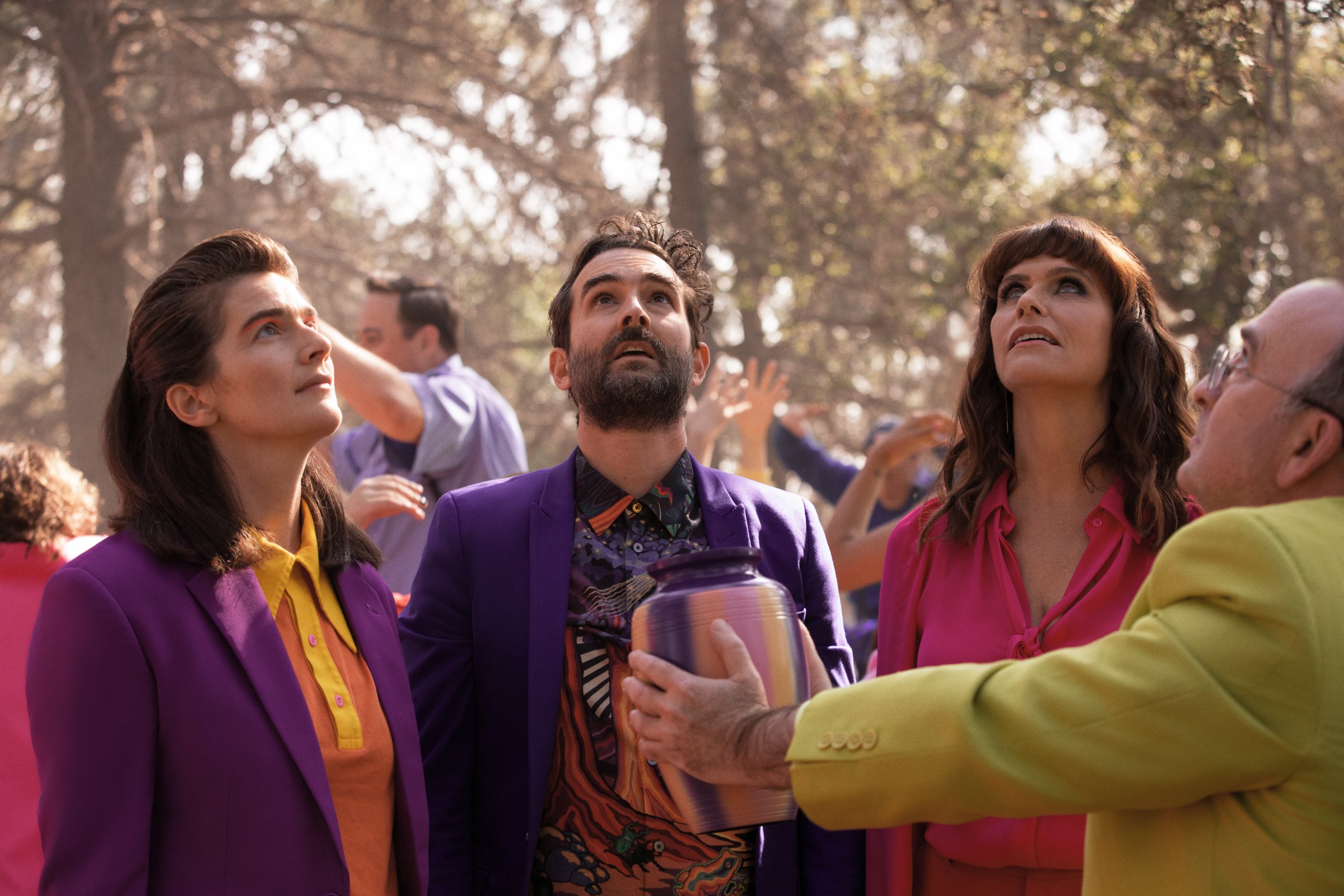
Jill Soloway’s Amazon dramedy Transparent debuted, in 2014, to near-universal praise and an armful of Emmys. Its story of a septuagenarian trans woman’s long-delayed decision to begin her transition—and explain who she really is to her conventional ex-wife and three self-involved adult children—broke ground. But social progress comes at you fast, and the show also soon faced criticism for casting a cisgender male actor, Jeffrey Tambor, as title character Maura Pfefferman. After three strong seasons that sent all of the Pfeffermans on odysseys through love, faith, career and especially identity—plus a fourth that felt kind of redundant—Tambor was fired amid reports of sexual misconduct from two co-workers, both of them trans women.
This upheaval explains but doesn’t excuse Transparent: Musicale Finale, the excruciating 100-minute coda that comes to Prime Video on Sept. 27. Directed by Soloway, from a script co-written with sister Faith Soloway, who composed the music and lyrics, the film unfolds in the aftermath of the trans parent’s offscreen death, as those who loved her celebrate her life and jazz-hands their way to unearned redemption. Following a late-in-life artistic awakening, Maura’s ex Shelly (the wonderful Judith Light) channels her grief and frustrations with her family into an extremely meta musical that re-casts the Pfeffermans with doppelgängers. (A weed dealer played by Shakina Nayfack, a trans theater artist, becomes the surrogate Maura, symbolically righting the wrong of Tambor’s casting.) Dilettantish youngest child Ali (Gaby Hoffmann) is now the nonbinary Ari, an aspiring rabbi. The other kids, Sarah (Amy Landecker) and Josh (Jay Duplass), don’t get much in the way of story lines, though Josh’s races to a pat resolution when Kathryn Hahn’s much-missed Rabbi Raquel comes back into the picture.
The musical format was never going to serve a show with such a delicate tone. It has always been apparent that Soloway, who based Maura on their real-life “Moppa” and wrote their own incremental transition away from binary gender and sexuality into characters like Ali and Sarah, loved the privileged, navel-gazing Pfeffermans more than they perhaps deserved—but in early seasons, the show laughed at and challenged them enough to impart some critical distance. In Musicale Finale, songs that issue straight from characters’ psyches destroy all perspective. Nothing ever cuts through the preciousness.
Worse are the musical numbers themselves, which are clearly meant to be silly and self-aware but often land as unintentional self-parody anyway. A production number called “Your Boundary Is My Trigger!” would be a funny showcase for Light, who knows her way around a stage, if the lyrics weren’t all purposely grating therapy-speak. In a pointlessly sexed-up solo, Hahn coos about the characters’ “specifically Jewish emotional form of ADHD.” Soloway has often shown insight into Jewish identity—yet here, the solution to the Pfeffermans’ allegedly inherited restlessness comes in the form of Shelly’s flaky suggestion that 6 million Jews feeling joy would constitute an “equal and opposite reaction” to the Holocaust. This prescription manages to be both offensive to Jewish people and solipsistically focused on healing the emotional wounds of the most privileged among us. “Take the concentration out of the camps/Concentrate it on some song and dance,” the Pfeffermans crow in a closing number that is really titled “Joyocaust” and that would beggar belief even if the specter of concentration camps wasn’t already weighing on American minds. “Hell yes, we crossed the line!” they belt. They sure did—but not quite in the way they intended.
More Must-Reads From TIME
- The 100 Most Influential People of 2024
- Coco Gauff Is Playing for Herself Now
- Scenes From Pro-Palestinian Encampments Across U.S. Universities
- 6 Compliments That Land Every Time
- If You're Dating Right Now , You're Brave: Column
- The AI That Could Heal a Divided Internet
- Fallout Is a Brilliant Model for the Future of Video Game Adaptations
- Want Weekly Recs on What to Watch, Read, and More? Sign Up for Worth Your Time
Contact us at letters@time.com